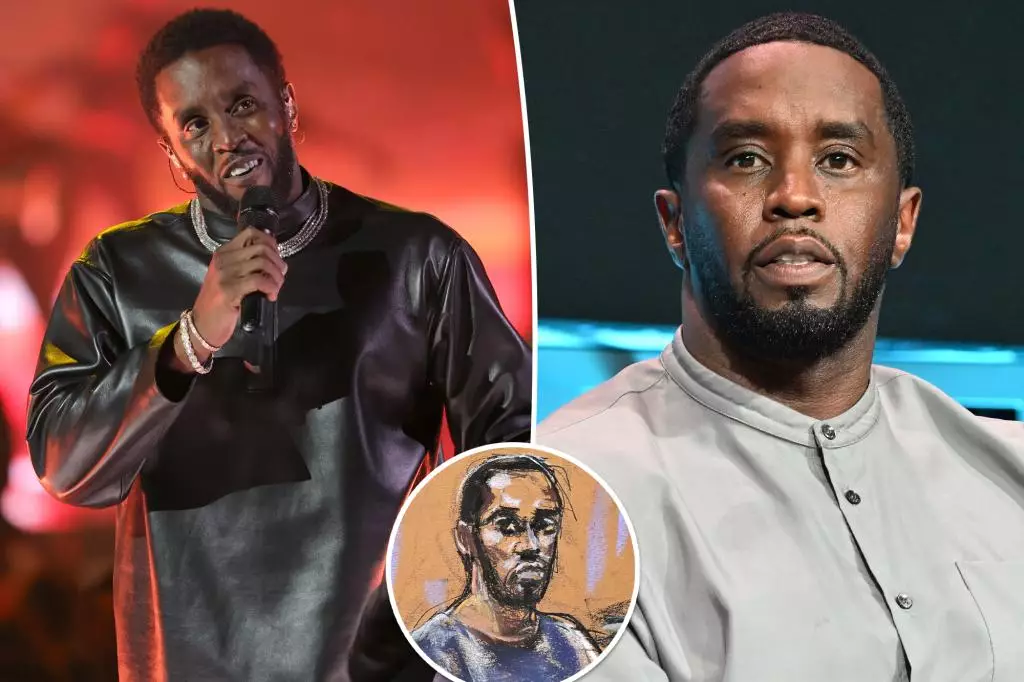Sean “Diddy” Combs finds himself amid a whirlwind of legal challenges as he readies for his sex trafficking trial. Recently, lawyers revealed that the music mogul has been removed from suicide watch, indicating a potential stabilizing of his mental health. The importance of Diddy concentrating on his defense is underscored by his lawyer, who assures the public that he is “focused and very strong.” The transition from high-risk observation in custody to a more typical setting reflects not only Combs’ emotional resilience but also serves as an indication of his legal strategy in the face of serious allegations.
The gravity of the accusations against Diddy is profound. Following a series of raids on his properties in Miami and Los Angeles, authorities uncovered alarming evidence, including a substantial cache of lubricant bottles and drugs, which are intertwined with the serious charges of racketeering, sex trafficking, and transportation for prostitution. The comprehensive indictment paints a picture of a criminal enterprise with connections to forced labor, kidnapping, and obstruction of justice. With such serious legal issues on the horizon, the stakes have never been higher for Combs, who has pleaded not guilty to all counts.
The psychological ramifications of the circumstances surrounding Diddy cannot be underestimated. Initially placed on suicide watch shortly after his arrest due to concerns about his mental state, reports now suggest that he is finding a balance despite the gravity of his situation. The U.S. Department of Justice provides insight into the nature of suicide watch, emphasizing its role as a protective measure for inmates deemed at risk. As Diddy prepares for what promises to be a harrowing trial, his reported visits with family, coupled with a positive mindset, hint at a complex but robust mechanism of coping and support during this turbulent time.
The legal troubles for Combs are not confined to the recent sex trafficking allegations. His past is shadowed by serious accusations from ex-girlfriend Cassie Ventura, who filed a lawsuit just months before his current legal battles. While the lawsuit was settled swiftly, the claims of rape and sexual abuse linger in the public consciousness and reflect a broader societal reckoning with issues of sexual misconduct. Diddy vehemently denied any wrongdoing, asserting that settling the lawsuit should not be misconstrued as an admission of guilt, which raises questions about the lasting ramifications of these accusations on his legacy across the entertainment industry.
As the trial date approaches, the conversation around Diddy evolves from mere allegations to the serious implications they hold for his future. His determination to prepare his defense signals a fight not only for his freedom but also for his identity within the music world. Whether he can emerge unscathed from these trials remains uncertain, but one thing is clear: the narrative of Sean “Diddy” Combs is being rewritten in real time, with each forthcoming court date further solidifying or dismantling his storied career. The complexities he faces serve as a potent reminder of the challenging intersection between fame, power, and accountability in contemporary society.

